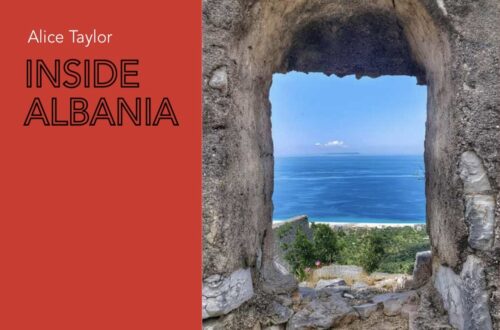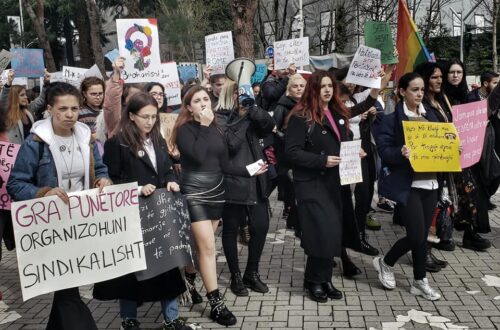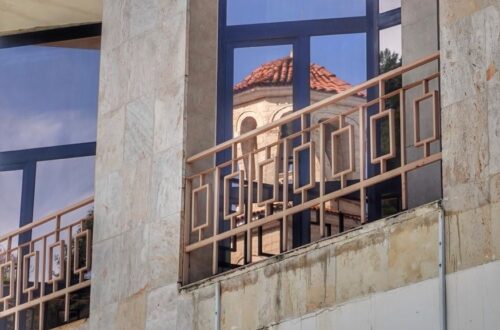Albania’s relationship with communism only came to an end in March 1992 but its legacy can still be seen to this day in its architecture and the 700,000 dome-shaped bunkers that pepper the country from north to south. These bunkers were built by the regime of Enver Hoxha over the course of his 40-year dictatorship as a precaution against the invasion he was convinced was coming, but that never came. Today they stand as a reminder of what happened as well as acting as an interesting to curious tourists and history buffs.
The communist party in Albania came to power in November 1944 and the first steps they took as rulers were to consolidate as much power as possible. In January 1945 a special court was set up in Tirana under the new Minister of the Interior, Koci Xoxe which was supposed to facilitate the prosecution of war criminals. Unfortunately, this court was never used for this purpose and instead it was a front for the oppression of actual or suspected opponents of the new regime who were unjustly sentenced to death or life imprisonment. By March of the same year, wealth and private property including land were seized through the means of a special profit tax, and almost overnight the middle classes ceased to exist.
The regimes strength began to increase and infiltrate every part of Albanian life. The reins of power were tightened and began to choke the country as the leader, Enver Hoxha aligned himself with Joseph Stalin’s Soviet regime in a bid to preserve and strengthen his position of power. This alliance with the Soviet Union provided Albania with many advantages in the form of economic assistance and military protection from neighbouring Yugoslavia as well as the West during the height of the Cold War. As Albania integrated itself into this Soviet world, it also began a period of extreme isolation from the rest of the world and that would last for decades. The party ruled with an iron fist and sought to create a siege mentality that would stifle any opposition- a tactic that is reflected in the phrase “Ndërtojmë socializmin duke mbajtur në njërën dorë kazmën dhe në tjetrën pushkën” (We are building socialism with a pickaxe in one hand and a rifle in the other). By 1955, Stalinist ideals were present in every sphere of Albanian society, it was completely cut off from the rest of the world, and fear ruled supreme.
But this love affair did not endure and by December 1961, Hoxha had decried revisionism as a result of Nikita Khrushchev’s assertation that Stalinism was nothing more than a criminal cult of personality. The Soviet Union cut all ties with Albania, and the Hoxha spin-machine went into overdrive to maintain his Stalinist-policies, whilst distancing himself from criticism and continuing to strengthen his power. By 1975, Albanian society was completely radicalised in terms of politics and society and in a bid to stem the tide of dissatisfaction with his rule, Hoxha began a campaign of terror that rippled throughout the whole country. His forces purged the country of intellectuals, writers, freethinkers, and suspected opponents or critics which plunged the country into confusion and insecurity, whilst contributing to a social setback that would resonate for decades.
Enver Hoxha’s constricting control of the country lasted until his death on April 11, 1985. During his rule, whilst he was responsible for eliminating adult literacy, building Albania’s first railway line, and rebuilding the devastation left after WWII, he was also responsible for the death and disappearance of up to 100,000 people. The consequences of his brutal and oppressive rule, as well as the isolation that he plunged the country into, are still felt today and Albania is still struggling to shake off the horrors of its past.
After his death, the reigns of the Partia e Punes e Shqiperise were handed to Ramiz Alia who began to loosen the policies and enforced ideas of his predecessor. Whilst the fundamental ethos of the party remained the same, Alia gradually introduced economic and social reforms, as well as reopening diplomatic ties with the Western world, slowly bringing an end to the self-imposed isolation of the previous years.
By 1989, the vibration of revolution was in the air and protests began to break out in various cities such as Shkodra and the capital Tirana. The regime was forced to further relax their grip and in 1990, it granted Albanians the freedom to travel abroad. With the new-found liberalism in Albania, Alia realised that if he wanted to retain his power, he would have to be seen to be more democratic and sympathetic to Western ideals so in 1991 the country held its first pluralist elections, which of course, Alia’s party won. This was not enough to halt the transition to capitalism that was so desperately wanted by the people, and opposition to his rule came to a head when students from the University of Tirana took to the streets to protest. After state police crushed the protestors, Ramiz invited a delegation of the students to discuss their concerns and work together to create a compromise.
Within months and after two rounds of elections and a general strike, Ramiz Alia resigned as president and Albania’s first democratically elected leader in decades- Berisha- took charge. Unfortunately, his election was not quite the salvation that the people had been hoping for. Citizens became frustrated with his increasingly authoritarian rule, the silencing of the media and civil society, and the lack of progress in terms of social and economic reform. In the 1996 elections, his Democratic Party tried to win with an absolute majority through the manipulation of results, and this combined with the collapse of Ponzi Schemes and widespread corruption led to the fall of the government in 1997, spreading rebellion and chaos throughout the country. Berisha’s government desperately tried to cling to power by force, but without the backing of the disillusioned military, these attempts proved to be futile.
Today, Albania is governed by the Socialist Party (the former communist party) which is ruled by its party head and Prime Minister Edi Rama.
I will keep my opinions on this matter to myself.
Follow The Balkanista!



